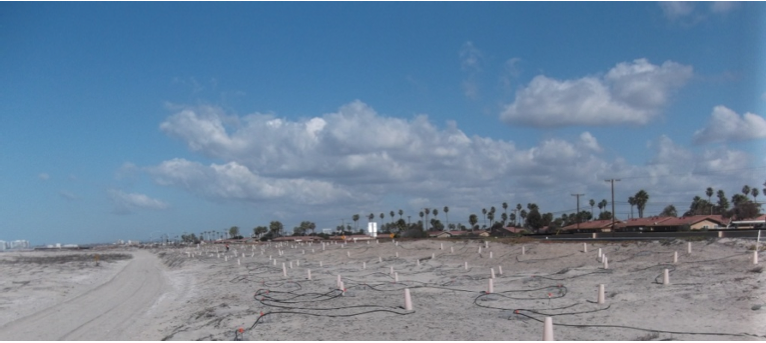Coronado, Calif. — Individuals driving along Silver Strand Highway may notice orange plastic cones along the Strand, the cones are part of Naval Base Coronado’s Natural Resources Department’s dune restoration and enhancement project that will benefit the nesting habitat for the federally endangered California Least Tern and federally threatened Western Snowy Plover.
The project includes removal of non-native plants, re-vegetation of dunes with native plant species with supporting temporary drip irrigation, protective plastic cones or wire cages, enhancement of nesting habitat, and warning signs protecting these areas.
Restoration work will be completed over a span of three years. The removal of non-native vegetation and the planting of native plants with supporting drip irrigation, protective cones and cages is complete. The drip irrigation, cones and wire cages will remain in place for the next 12 to 18 months to ensure plants become established and are not eaten by hungry herbivores. Restoration work is being carried out under a cooperative agreement between the Navy and San Diego State’s Soil Ecology and Restoration Group.
Environmental protection and restoration projects like these contribute to the outstanding natural resources management program at Naval Base Coronado. NBC recently became the first Navy entity to ever win the U.S. Fish and Wildlife Service Annual Military Conservation Partner Award, which recognizes outstanding partnership work in promoting conservation on military lands.
– USN –
Native dune restoration at Silver Strand Training Complex-North showing plant protectors and drip irrigation. Photo by Richard Hillary.





